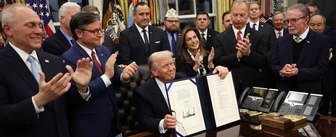Americans are divided on the benefits and costs of free trade and attitudes towards the President may be changing public opinion
The Congressional votes on fast track trade legislation have involved an unusual situation: most Republicans took the side of President Obama in support, while Democrats – for a variety of reasons – opposed their party’s leader. In the latest Economist/YouGov poll Americans of both parties appear to be basing their judgments about free trade more on their opinions about President Obama, not necessarily agreeing with their party’s representatives on trade.
Democrats today take the position that free trade grows the economy, while Republicans believe it slows the economy.
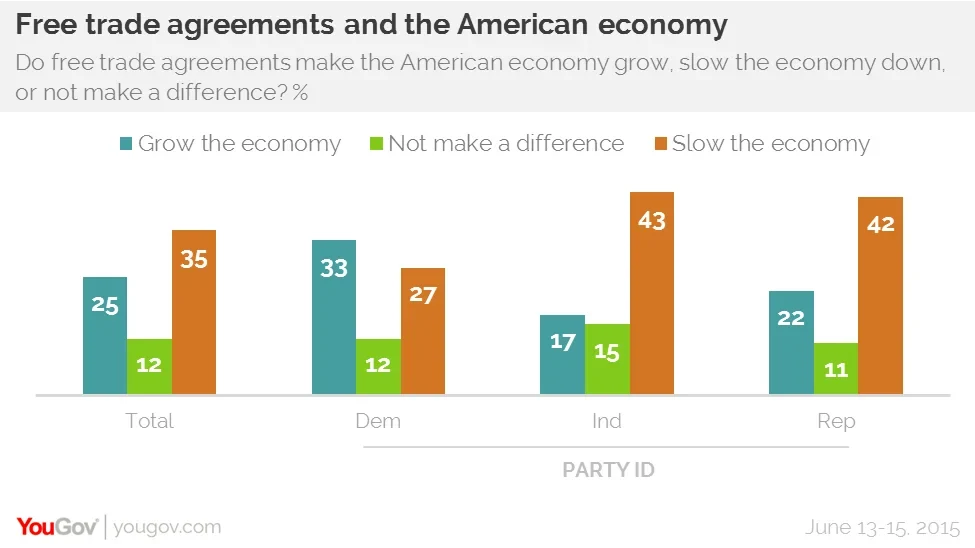
And by two to one, Democrats say free trade generally is good for the United States, something Republicans, whose party is known more for favoring free trade, divide on in this poll.
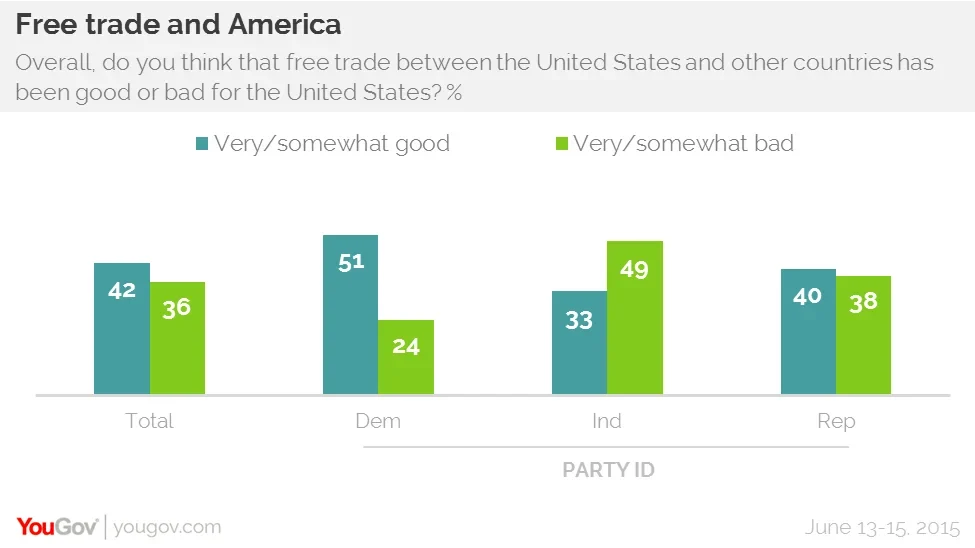
The Presidential intervention in last week’s Senate vote may have annoyed some Democratic leaders, but nationally Democrats are evenly divided on whether they approve or disapprove of Congress rejecting the fast track legislation. Republicans have no such qualms. By more than two to one, they say they are happy with the rejection of the bill.
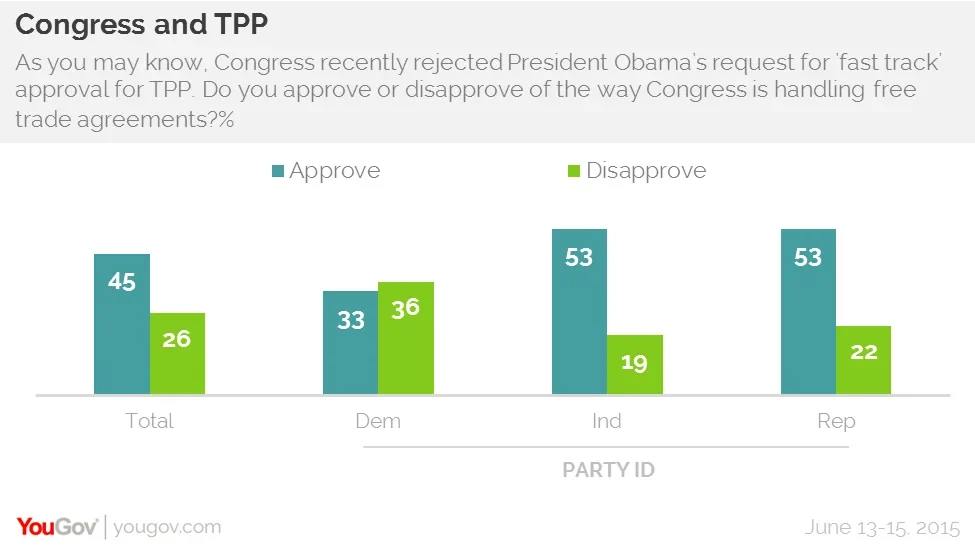
One significant issue with trade legislation and the public is the relatively low attention level that Americans admit they give to free trade issues. Nearly half say they have heard “nothing at all” about the Trans-Pacific Partnership (TPP). Even more, 56%, admit to hearing nothing about TIPP, the Transatlantic Trade and Investment Partnership. Republicans, Democrats and independents are similarly inattentive to these issues.
Even while the debate on “fast track” has dominated Congressional news in recent weeks, that has not penetrated public consciousness. 44% say they have head “nothing at all” about the debate, while another 29% admit to hearing “only a little.” So perhaps it is not surprising that opinions on trade are being guided by opinions about President Obama. If he wants something, most Democrats agree with him, while many Republicans appear to instinctively take the other side (64% of Republicans say they disapprove of the way President Obama is handling free trade agreements; only 13% approve).
That makes trade a difficult subject for Americans, but there are some things about trade on which both parties’ identifiers agree.
- Republicans and Democrats agree that free trade can result in lower price for consumers.
- But they also believe it can lower wages for American workers, and cost jobs.
- The benefits may be more for people of developing countries: majorities agree that free trade is good for them
Jobs – which was part of the workers’ assistance bill that some Democrats in Congress had hoped to link to the passage of “fast track” – and keeping jobs in the United States is important to all Americans. Nearly two-thirds of both Republicans and Democrats would favor keeping jobs in the United States even if that meant prices would be higher.
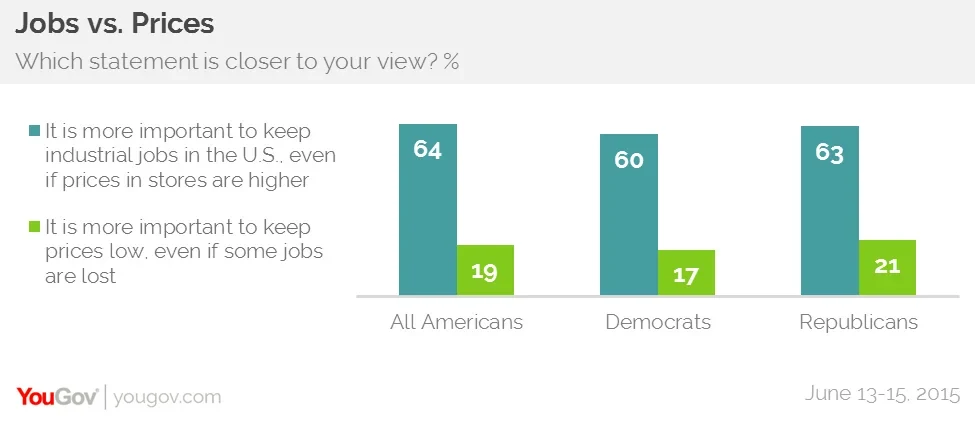
NAFTA, the North American Free Trade Agreement, was negotiated by a Republican President (George H.W. Bush) in 1992; it was ratified and implemented by bipartisan votes in the Senate and House during the administration of a Democratic President (Bill Clinton). Clinton added two other agreements to the bill that would protect workers, along the lines of the current Obama proposals.
But opinions of NAFTA today are no longer bi-partisan, with Democrats far more positive than Republicans about the agreement. Majorities of Democrats believe NAFTA has been good for consumers and for companies (only 41% and 37% of Republicans respectively agree). Half of Democrats say NAFTA has been good for the economy (just 37% of Republicans think that). However, Democrats divide evenly on whether NAFTA has been good for U.S. jobs (half of Republicans say it has not). Overall, Democrats say NAFTA has been good for the country, while Republicans disagree.
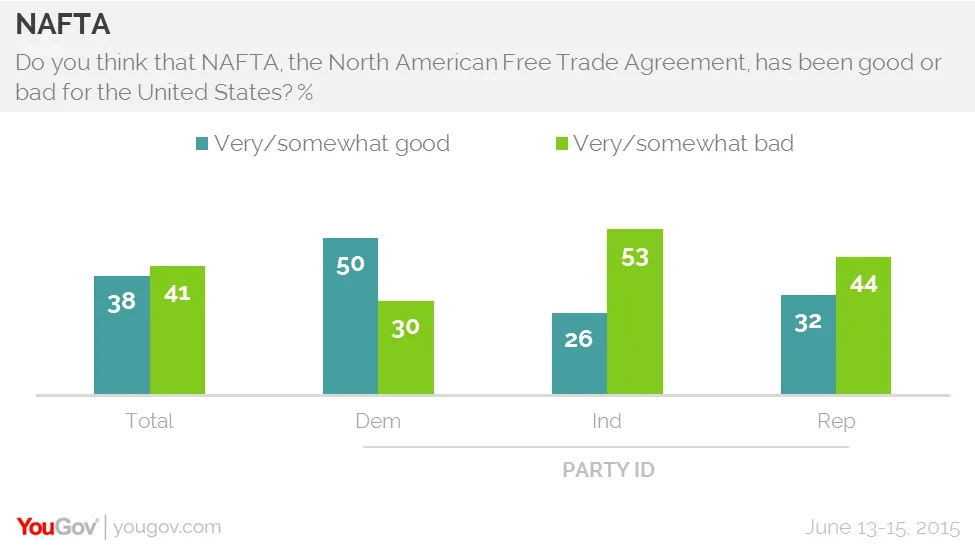
Economist/YouGov poll archives can be found here.






